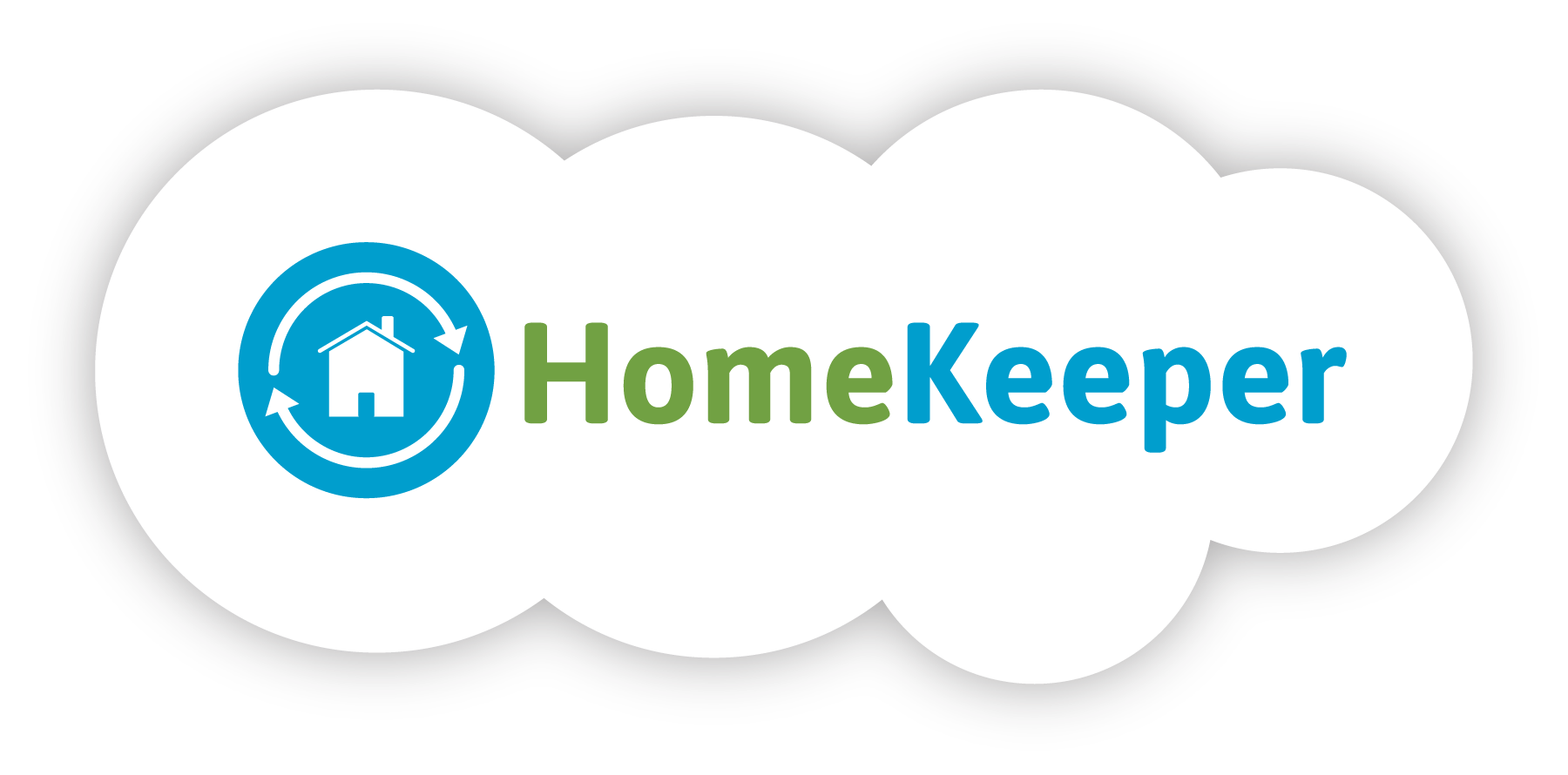Grounded Solutions Network’s HomeKeeper team is encouraging homeownership programs and housing counseling agencies to track activities and cases related to the current pandemic. Doing so will help program staff better support individuals and families, and strengthen our ability to advance sector goals at the local and national level. This information was also shared on a Leaders for Housing Counseling webinar.
Housing counseling in the era of COVID-19
As our new reality sets in, it’s clear that nonprofit housing organizations and housing counseling agencies are being called into action to support a growing number of families facing housing insecurity. Even after the pandemic curve flattens, the financial aftershocks will continue to disrupt life for months and years to come. Program staff and counselors are already fielding calls from folks unable to pay rent or their mortgage and are anticipating future demand for counseling services.
 As Barbara Geries, Home Education Manager at Champlain Housing Trust recently shared, “We anticipate our eviction prevention program numbers will explode in the coming months due to COVID-19, and likely mortgage delinquency and foreclosure as well. We have a lot of service workers and restaurant workers, so we expect the impact is going to be with us for a long time.”
As Barbara Geries, Home Education Manager at Champlain Housing Trust recently shared, “We anticipate our eviction prevention program numbers will explode in the coming months due to COVID-19, and likely mortgage delinquency and foreclosure as well. We have a lot of service workers and restaurant workers, so we expect the impact is going to be with us for a long time.”
Leveraging technology to better respond
While this pandemic is unprecedented in reach, housing counselors are known as financial first-responders for the most vulnerable. Recent history has shown their ability to guide families through the foreclosure crisis and regional disasters such as hurricanes and fires.
Over the years, we at Grounded Solutions have seen how affordable housing and housing counseling organizations have leveraged the power of HomeKeeper, our Salesforce app, to better respond to emergencies and disasters. For example, we’ve seen housing organizations use HomeKeeper to measure impact and work smarter in the midst of the housing crisis and respond faster in the wake of the urban wildfires in 2017.
More recently, OPAL Community Land Trust, a HUD counseling agency on Orcas Island, Washington, created a COVID-19 emergency assistance program for families struggling to make housing payments. Program staff were able to quickly adapt their existing technology (using HomeKeeper, Salesforce and FormAssembly) to process applications, with little additional effort from staff. Best of all, they were able to process grant applications and turn around checks to families in a matter of days so April rent checks could paid on time!
Tracking the aftermath of the pandemic, one case at a time
Applying technology to respond to an emergency is critical. Analyzing data for greater impact is also an important part of managing in a crisis. As this pandemic progresses, we’ve all seen the importance of up-to-date, accurate, and comparable data.
So how do organizations balance time spent delivering much needed emergency services with the need to invest time in program reporting, measurement and evaluation? As we’ve previously shared, the key to crafting compelling data-driven stories is setting shared data standards and practices in the beginning, and ensuring the data is complete and correct over time. By integrating data collection within program management practices, program evaluation and data collection can happen together, in real-time.
In the spirit of helping housing organizations become more informed, the HomeKeeper team at Grounded Solutions Network recommends that all counseling programs put in place systems that allow counselors to track emergency or disaster-related counseling cases at the time of intake. Each case record should systematically track whether or not the individual or family is related to the current pandemic. By tracking impacted households and related cases, agencies can:
- Segment cases directly related to COVID-19 for comparison with unrelated cases
- Identify changes and patterns in caseload growth over time
- Quantify interventions and outcomes
- Notify clients as new funding opportunities become available
- Monitor caseloads to avoid staff burnout and prioritize areas for counselor training
- Share data-driven stories with funders and community stakeholders
HomeKeeper responds
At HomeKeeper, we believe that better data leads to deeper insights and bigger impact. We’ve seen how even the smallest data point can tell a compelling story. And how nonprofits can share their stories to increase support and push for positive change.
In recent weeks, the HomeKeeper team has been gathering feedback from our users on how to incorporate new disaster-tracking features into HomeKeeper. In response, we are planning to update our client management system (CMS) to help homeownership program staff and housing counselors flag pandemic-related counseling cases. If development and testing proceed as planned, these new features will be available this summer.
Why the rush? We recently asked Kate Carden Director of Financial Mobility Programs at CHN Housing Partners what she sees as the importance of these updates. She responded:
I know that we’re probably going to have multiple grants come into play that will serve only COVID-impacted clients. This will allow us to designate clients as COVID-impacted at intake so that we can properly connect their file back to the corresponding grant.
More broadly and longer term, collecting this information could be used to demonstrate our impact throughout and after the crisis, which could help tell our story when we apply for future funding.
Putting practices like these into place now will open a range of reporting possibilities in the future as programs respond to the unfolding crisis. Counseling agencies will have the segmented data needed to reflect on the impact of the pandemic, and the effectiveness of the response. As a result, program managers can ask and answer questions such as:
- Which subgroups have the sharpest increases in eviction and foreclosure prevention cases?
- How do COVID-19 related cases vary by income, race and ethnicity?
- Who is being served and how do the demographics compare to the local community?
- What types of counseling services were provided to affected individuals and families?
- How successful were counselors in helping clients access housing and emergency resources?
DIY case tracking
 Until HomeKeeper and other management systems support disaster impact tracking, counseling managers can develop their own interim solutions with counselors. Start by answering this simple question, “What do we need to do to be able to identify a household, counseling activity or case as related to this disaster or emergency?“ Setup an agency-wide system for tracking, train counselors and document associated outcomes. Some examples for implementation include:
Until HomeKeeper and other management systems support disaster impact tracking, counseling managers can develop their own interim solutions with counselors. Start by answering this simple question, “What do we need to do to be able to identify a household, counseling activity or case as related to this disaster or emergency?“ Setup an agency-wide system for tracking, train counselors and document associated outcomes. Some examples for implementation include:
- Ask counselors to specify in the notes if the case is related to the pandemic, and if so, describe the impacts on the individual or family, the services received and/or referrals provided as a result.
- If program data is in easily searchable, use a common searchable phrase such as #COVID19 in the records to quickly find related notes and cases in the future. If using Salesforce Chatter, create a tag so others can follow.
- Set an agency-wide naming convention to label case files in a way that indicates it is related to COVID-19. For example, “COVID-19 Martinez, 1-1 Counseling.”
- Create a shared google sheet or excel online spreadsheet detailing the number of COVID-related cases opened and resolved each month, quarter and year to date.
- Review historical program data and set a baseline for describing your caseloads.
- Consider what other intake, assessment or outcome-tracking data points can supplement the existing process and update forms and checklists to assist with data collection.
The potential of sector-wide tracking
The National Housing Resource Center is currently gathering housing counseling stories, including examples of scams, clients struggles, servicer problems, and client successes. Ultimately, sharing these stories in the media will elevate the role of housing counselors during this crisis. And while personal narratives are certainly compelling, the sector will be in an even stronger position to communicate impacts and advocate for resources if we can backup these stories with accurate and comparable program data from around the country.
As more and more organizations track the impact of the pandemic on their work, we can better understand national trends across the sector through data analysis and research. If all 1,800+ housing counseling agencies were able to segment their existing HUD data by clients that were and weren’t affected by the current pandemic, we could answer questions such as:
- How are communities of color being affected?
- Which subgroups have the sharpest increases in eviction and foreclosure prevention cases?
- Are national efforts having an equitable impact on the local communities?
- Did the pandemic result in increasing the number of counselors across the sector, or did it increase the caseloads?
- To what extent are counselors able to influence the outcomes for clients affected by disasters?
Now is the time to work together
As the housing counseling industry moves towards increased data standardization, we encourage local counseling agencies and national stakeholders, including the HUD Office of Housing Counseling, the National Housing Resources Center, housing counseling intermediaries, the Housing Counseling Federal Advisory Committee, other client management system (CMS) providers and the MISMO standards organization, to join us in promoting the tracking of pandemic-related housing counseling cases.
Additional resources should also be sought to standardize and aggregate data across the sector for further measurement, evaluation and learning. Only then will we be able to fully appreciate the the lasting effects of the pandemic and the role that homeownership and housing organizations play in responding to community needs.
Now is the time to put disaster-tracking systems into place for local programs and the sector as a whole, before the surge in caseloads overwhelms the agency’s ability to thoughtfully implement a data collection strategy for responding to disasters. As we’ve all painfully learned, it’s never too early to plan for an emergency, and never too late to respond.
By Tiffany Eng, Program Director of HomeKeeper at Grounded Solutions Network
More about HomeKeeper: HomeKeeper is a homeownership program manager and HUD-approved client management system (CMS) for homeownership and housing counseling agencies. It is cloud-based, so it is accessible via secure access from anywhere with an internet connection. HomeKeeper helps program staff with day to day program and case management, but has also been adapted for disaster and emergency and assistance programs. Standardized data from homeownership programs are aggregated at the sector level in the HomeKeeper National Data Hub.
